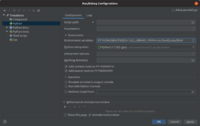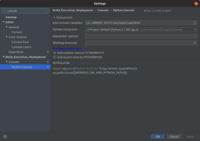CUDA
Appearance
Installation
I suggest using conda to install cuda for version control your project.
Note that nvidia-smi lists the maximum CUDA version supported by the GPU driver, not the installed version of CUDA.
You can have a different version of CUDA installed in each conda environment, independently of the version supported by the GPU driver.
Conda
See nvidia/cuda-toolkit and nvidia/cuda-libraries-dev
For example:
# Install the runtime only
conda install -c "nvidia/label/cuda-11.8.0" cuda-toolkit
# Install the runtime and the development tools
conda install -c "nvidia/label/cuda-11.8.0" cuda-toolkit cuda-libraries-dev cuda-nvcc
Ubuntu
Details
# Set UBUNTU_VERSION to 2004 or 2204
UBUNTU_VERSION=$(lsb_release -sr | sed -e 's/\.//g')
# Install nvidia driver
sudo apt install nvidia-driver-545
# Add NVIDIA package repositories
wget https://developer.download.nvidia.com/compute/cuda/repos/ubuntu${UBUNTU_VERSION}/x86_64/cuda-ubuntu${UBUNTU_VERSION}.pin
sudo mv cuda-ubuntu${UBUNTU_VERSION}.pin /etc/apt/preferences.d/cuda-repository-pin-600
sudo apt-key adv --fetch-keys https://developer.download.nvidia.com/compute/cuda/repos/ubuntu${UBUNTU_VERSION}/x86_64/3bf863cc.pub
sudo add-apt-repository "deb https://developer.download.nvidia.com/compute/cuda/repos/ubuntu${UBUNTU_VERSION}/x86_64/ /"
# Install cuda.
sudo apt install cuda
# Reboot and check that the drivers are working with nvidia-smi
sudo reboot
# Install cudnn if needed
sudo apt install libcudnn8 libcudnn8-dev
- Notes
- For machine learning, use Anaconda or Docker's CUDA since different versions of TensorFlow and PyTorch require different CUDA versions.
You may need to add LD_LIBRARY_PATH=/usr/local/cuda/lib64 to your environment variables.
You can also do this in PyCharm.


GCC Versions
nvcc sometimes only supports older gcc/g++ versions.
To make it use those by default, create the following symlinks:
sudo ln -s /usr/bin/gcc-6 /usr/local/cuda/bin/gccsudo ln -s /usr/bin/g++-6 /usr/local/cuda/bin/g++
Alternatively, you can use -ccbin and point to your gcc:
-ccbin /usr/local/cuda/bin/gcc
